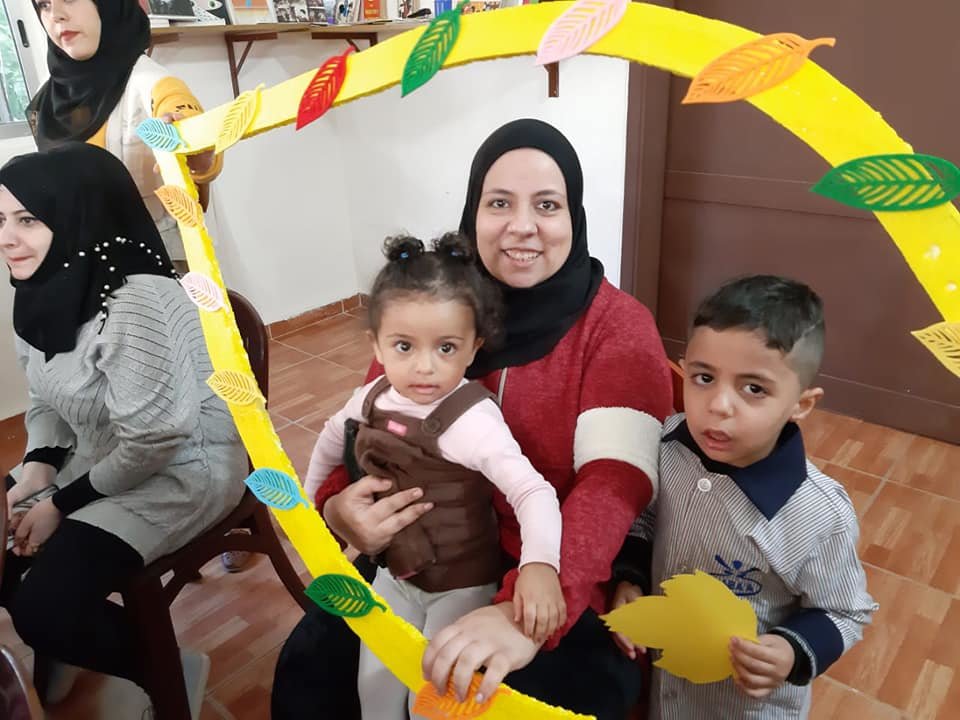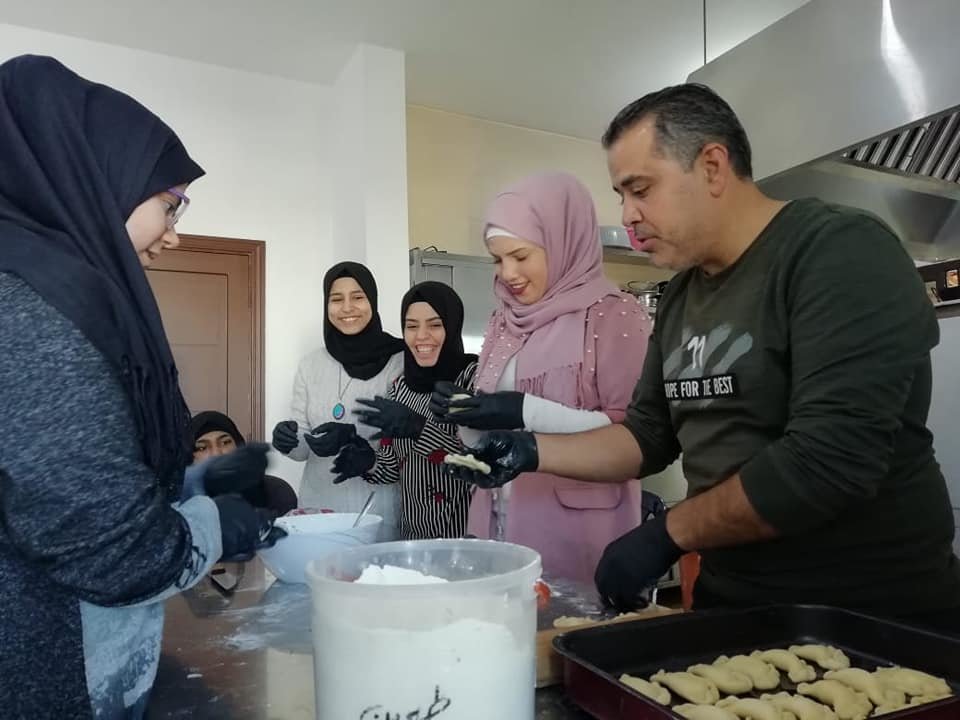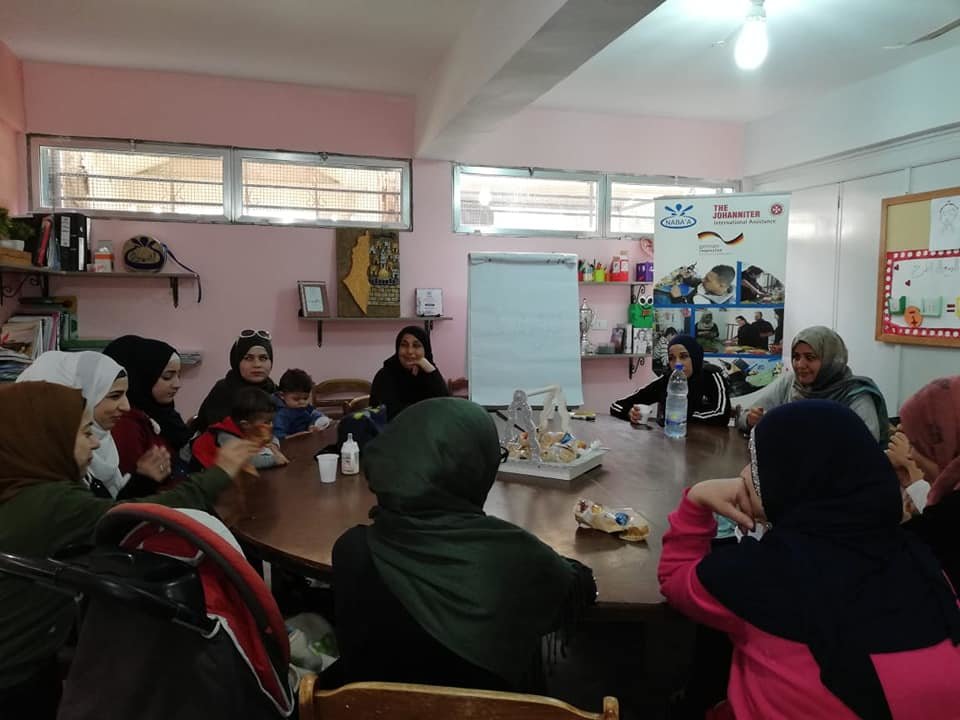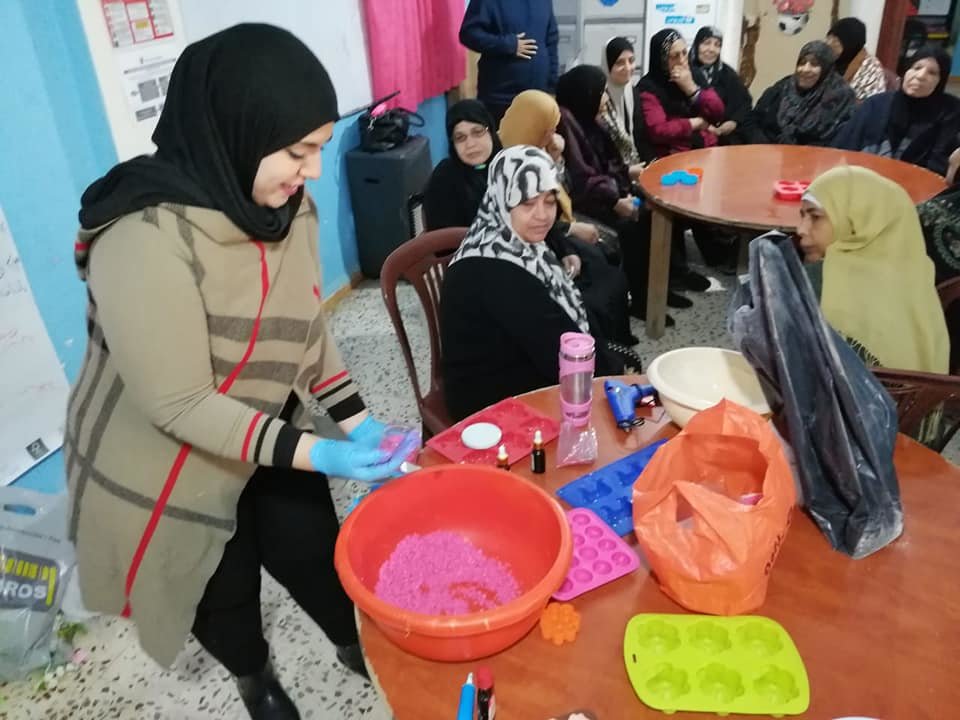By Hiba Hamzi | Program Coordinator
Background during and after the implementation of the project;
The recent deterioration of the socio-economic and political situation in Lebanon indicates that implications and other effects are much more difficult among the refugees community in Lebanon. And It has become obvious that the political, economic and financial crisis that Lebanon is experiencing, has cast a shadow over all residents of Lebanon in general and especially on Palestinian refugees who are already suffering from hazardous and difficult situations. For the purpose of observing the details of how the Palestinians are suffering in the Palestinian Camps, Naba’a team monitored some of the indicators that indicates the worsening of the living crisis, as follows:
The Common observations and indicators in all camps:
- The unavailability of some types of goods from the mini-market shops as a result of high prices, especially milk and imported materials.
- Sales decreased by 80% on minor materials and 50% on basic materials.
- More than 50% of parents aren’t capable of giving their children money when they have to go to school.
- The number of people below the poverty line has increased to 80% according to preliminary estimates.
- Decrease in the percentage of purchasing meat and chicken up to 70%, where sellers indicated to reduce the purchase of basic goods by this percentage.
- Increase in the prices of basic materials such as rice, sugar, oil, etc. by 40% and some of them up to 50%.
- Most homeowners and shops who rent their homes are requesting the rent amount to be in US dollars or Lebanese pounds at an exchange rate of 2,000 Lebanese pounds for every US $ 1.
- People started to buy food that is expired or close to completion due to their inability to buy usable items
- Traders are requesting from the owners of shops in the camp to pay their debts in US dollars.
Ein El Helwi:
- 95% of the youth from Ein El Helwi “down street " are unemployed, where most tends to organizations in order to gain their livelihoods or to be provided with job opportunities.
- Nearly 15 shops were closed in Ein el-Hilweh camp.
- A large number of shops are going to be completely closed in Ein El Helwi " Al Tahtani Street “and “vegetable market street”, because of the inability to buy goods and pay rent shops.
- Almost ten people near to Khalid Bin Al Walled Mosque in the Gemayzeh neighborhood have not been paid their monthly salary for 3 months.
- Two divorce cases were registered in Ein El Helwi due to the inability of the family to be financially sufficient and the inability to provide the necessary needs.
- More than 40 Palestinian employees, who are working at Hassanein and Hijazi companies, earn half salary and work 15 days a month since the beginning of the crisis.
- More than 20 people, who are working in the fun world, have been paid half a salary since the previous three months.
- 48 workers from inside the camp were fired from the waste plant and the rest receive their salaries in several payments.
- A number of camp residents expected that if this crisis continues, its impact will go beyond another context such as cases of theft, crimes, etc.
Finally, the future of Syria and its people remains unknown. More than four million Syrians have fled the war to become refugees in the neighboring countries in the Middle East and North Africa (MENA) region. The majority of the refugees reside in neighboring countries within the region. Before the war, an estimated 20 percent of Syrian young people were enrolled in tertiary education (EU Regional Trust Fund in Response to the Syrian Crisis, 2016), but as the war continues, Syrian refugee youth face barriers accessing tertiary education in the countries in which they seek refuge.
Naba’a Achievements; During the last period, Naba’a aimed to improve the situation of the women and girls living in the most marginalized and impoverished communities. Through different interventions Naba’a also works on gathering both (Palestinian refugees women who are already living inside the camps and those who fled from Syria) to raise together their common problems and sufferings, monitoring the violations of their rights in the local community and to reduce the conflict among themselves. By taking a grassroots approach we aimed to help women to become effective actors for social change; giving them the knowledge, skills and confidence to drive social change in their own communities. Therefore, Naba’a intervention is based on two mainstreams;
o Women and girls access reproductive health services; Nabaa’ targeted 9689 beneficiaries 820 male and 8869 provided two non-consecutive days/ week – clinics in Ein el Helweh and Rashidieh which targeted 1230 female (45 from the age group of 11-18 and 1100 from the age group 19-35 and 85 from the age group of 36-50+) note that, the clinics are managed by a women gynaecologist and a female nurse and the clinic operates one day in the afternoon.
Case Study
ü Violence in school
ü engaged at 14 years’ old
ü Dropout from school
ü Married
What happened?
Since the beginning of the project, by drawing attention to the project's aim and through meetings with girls that we were targeted, she told us that she was engaged, but she liked the idea of the project and asked to participate in it. And one of the objectives of the project is to work with girls who are vulnerable to early marriage.
When did it happen (most recent incident if happened more than once)?
After building a good relationship and a trust between the social worker and the girls, the girl told her story to the social worker.
Because of the social norms and traditions of the area that do not allow the girl to get out of the house and mingle during her adolescence, and because of the absence of parents' interest in the feelings of the girl and lack of consciousness of her and guide her to what is best for her in the future, all that encouraged the girl to establish an emotional relationship with one of the young relatives. When parents knew about this relationship for fear of its consequences and from the words of people in society and based on the social norms and traditions, the parents agreed on the girl engagement, and it was as a joy on this step. And she decides her wedding date when she is 17 years’ old
When the engagement took place, she was encouraged to leave school because she was subjected to violence, which affected her degrees in the school, where She was retreating, especially After she failed in the grade 7. she dropped out of school and found no one to encouraged her to continues her education.
How has it affected the young person?
Engagement affected the study of the girl in conjunction to subjected to school violence and the lack of parents' interests, which encouraged her to drop out of school from the grade 7. And decided to marry when she becomes 17 years old.
Was there any Follow up, and what was the outcome?
After the participation of the girl in the project's activities, after participating in the training (protection - life skills - the risks of early marriage - the importance of education) and through integration into society through the implementation of awareness sessions for her peers and participation in advocacy campaigns that encourage girls to education, which encouraged her To participate in quick professional courses, and the participation of her parents in awareness sessions for parents, which affected the thinking of parents and girls and delay the age of marriage until after 18. the wedding was held at the age of 19 years in agreement with her future husband successfully and joyfully. Even after marriage, she still participates in the project's activities.
Other comments or details
We Encouraged her to return to school and complete her educational career. And raise her awareness about family planning.
Links:
Project reports on GlobalGiving are posted directly to globalgiving.org by Project Leaders as they are completed, generally every 3-4 months. To protect the integrity of these documents, GlobalGiving does not alter them; therefore you may find some language or formatting issues.
If you donate to this project or have donated to this project, you can receive an email when this project posts a report. You can also subscribe for reports without donating.
Support this important cause by creating a personalized fundraising page.
Start a Fundraiser


